20+ Years Experience
Specialist Private Drug Rehab

Prescription drug addiction is a widespread issue that affects millions of lives.
With a diverse range of rehab for prescription drug addiction and different types of prescription drugs used, understanding the available treatment options is crucial in overcoming such challenges.
Dive into this comprehensive guide to explore the intricacies of prescription drug rehab programs, therapies, and the factors to consider when choosing a facility.
Learn how to maintain a drug-free lifestyle after rehab and build a strong support network for long-term success. Are you ready to embark on a journey towards recovery and a healthier life?
Prescription drug addiction arises from prescription drug abuse, such as the misuse or long-term use of prescription opioids, benzodiazepines, and stimulants, leading to physical and psychological dependence.
Seeking treatment for both prescription medication and drug abuse and addiction is vital due to the potentially detrimental consequences prescribed drugs have on physical and even mental health issues, which can result from inappropriate prescription medication and prescription drug abuse and use.
Prescription drug addiction treatment is tailored to address different prescription drugs and their addictive nature.
We will now examine the unique characteristics of the three main types of prescription drug addictions in the context of taking prescription drugs and using in prescription drug rehab for prescription drug rehab among others, using prescription drugs in prescription drug rehab and for prescription drug recovery and the prescription drug rehabilitation itself.
Opioids are highly addictive painkillers that can lead to tolerance, increased doses, and withdrawal symptoms.
Opioid addiction occurs when the brain develops a tolerance to the drug, necessitating higher doses to achieve the same effect, thereby leading to addiction and withdrawal symptoms.
The use of opioid painkillers can induce a state of serenity and elation, which can be habit-forming for certain individuals, thus prompting them to consume the drug excessively, irrespective of necessity.
Recovering from opioid addiction often requires intensive therapy and the assistance of medical professionals at a professional rehabilitation centre.
Benzodiazepines are sedatives that can lead to addiction as a result of their soothing effects and the emergence of physical and psychological dependence.
Prolonged use of prescription painkillers may lead to the development of physical and psychological dependence on prescription drugs, thus resulting in addiction.
Benzodiazepines, such illicit drugs such as sleeping pills, work by reducing brain activity and subsequently inducing sleep. Holistic therapies during benzodiazepine rehabilitation can include:
These therapies enhance clients’ prospects for enduring recuperation.
Stimulants, such as amphetamines, elevate dopamine levels, resulting in feelings of euphoria and potentially leading to addiction and physical dependence.
The cause of amphetamine addiction is attributed to the alteration of the brain’s reward system, which results in physical dependence and withdrawal symptoms.
Given the significant impact of synthetic stimulants like amphetamines on an individual’s life, medical and mental health professionals often say specialised treatment programs are a necessity for recovery.
Overcoming addiction necessitates prescription drug rehab, which provides medically supervised prescription drug detox, therapy, and holistic treatments.
Rehab for a prescription medication or drug addiction ensures a structured and focused path towards recovery, free from the distractions and pressures of daily life, enabling individuals to concentrate on their healing journey completely. Prescription medication plays a crucial role in this process.
The key components of the prescription drug and treatment plan and the various prescription drug treatment, and prescription drug treatment and rehab, and programs that contribute to successful, prescription drug use and recovery, are worth examining.
Medically supervised detox ensures a safe and comfortable withdrawal process, minimising risks and complications.
During the natural detoxification process, a physician evaluates the patient and if using certain medications or prescription medications and assists them in eliminating all traces of illegal drugs and prescribed medications from their body.
The natural detox program includes:
A crucial first step in the recovery process is medically supervised medical detox, which sets the stage for the subsequent, group therapy, and individual counselling sessions in the treatment plan.
Therapy and counselling sessions in prescription drug rehab focus on addressing the root causes of addiction and providing individuals with strategies for sustained recovery.
The comprehensive outpatient rehab and treatment and rehabilitation programme, and program at Oasis Runcorn includes:
Group therapy sessions provide an insightful and empathetic environment that can contribute to the progression of clients’ recovery.
Holistic treatments, such as yoga, meditation, and acupuncture, can help calm the mind and body during the recovery process.
These therapies not only promote relaxation and well-being but also improve physical and mental health throughout the treatment programme and the rehabilitation journey.
Sanctuary Lodge’s prescription drug rehab program aims to furnish a comprehensive and balanced treatment program to guide residents towards recuperation, incorporating holistic treatments along with traditional therapies.
The integration of holistic treatments in the rehab program enhances the chances of long-term success in recovery.
Selecting the right rehab facility is an important decision that can significantly impact the recovery process.
Factors such as public vs. private rehab, location, and specialised treatment programs should be taken into consideration when choosing a facility best suited to an individual’s needs and preferences.
A closer examination of these factors will aid in making an informed decision.
Public rehabilitation facilities may be more cost-effective but may have longer waiting periods, whereas private rehabilitation facilities provide immediate admission and individualised care.
Public rehabilitation centres are typically funded or operated by the government or non-profit entities and possess limited resources.
On the other hand, private rehab centres are privately owned and funded, providing more tailored rehabilitation programmes and treatment programmes, treatment programme options and a higher level of comfort exercise facilities and amenities typically prescribed in rehab centres.
The choice between public and private rehab depends on personal factors such as financial constraints, the urgency of treatment, and the desired level of care.
The location of a rehab facility is of great significance as it can affect the recovery process and lessen the likelihood of relapse.
Some individuals find comfort in being close to their family and friends, while others may benefit from a more secluded setting away from their usual environment.
The ideal location for a rehab facility will vary for each person, depending on their individual preferences and requirements.
Weighing the pros and cons of each location is crucial in determining the most beneficial environment for recovery.
Specialised treatment programs cater to specific types of addiction and may offer additional support and resources for long-term recovery.
These programs provide targeted interventions and support for individuals with specific issues such as:
and more.
The advantages of specialised treatment programs include interventions and support that are tailored to the individual’s particular needs, as well as additional resources and support for long-term recovery.
Considering the availability of specialised drug treatment programs in a rehab facility can greatly contribute to the success of the recovery process.
Maintaining a drug-free lifestyle post-rehab requires continuous support, the development of healthy coping mechanisms, and a robust support network.
This is an essential phase in the recovery process, as individuals transition back to their daily lives while upholding a drug-free lifestyle.
The key elements that ensure a successful life post-rehab are worth investigating.
Aftercare support is a critical element of the overall treatment process and can significantly enhance the prospects of long-term success in recovery.
It assists individuals to remain accountable and concentrated on their recovery and furnishes them with the necessary resources and support to sustain their sobriety.
Common forms of aftercare support include:
Engaging in aftercare support can provide the ongoing encouragement and motivation needed to maintain a drug-free lifestyle.
Developing healthy coping mechanisms can help individuals manage stress and avoid relapse. Some strategies to consider include:
These strategies allow individuals to manage stress, emotions, and difficult situations in a positive and constructive manner.
Practising healthy coping mechanisms can assist in reducing stress and controlling cravings, diminishing the likelihood of relapse and ensuring long-term success in recovery.
Building a support network of friends, family, and peers in recovery can provide encouragement and understanding during challenging times.
A network of people who comprehend and back up your recovery can offer the motivation and responsibility required to remain on course.
Constructing a support network can be aided by:
Having a strong emotional support network is indispensable for sustaining a drug-free lifestyle after rehab.
To stop being addicted to prescription drugs, it’s important to reduce the amount consumed gradually with the help of a doctor, in order to avoid any withdrawal symptoms.
It is also important to seek out support from family and friends, as well as a medical professional for help if needed. Additionally, it is important to find healthy activities to replace the time spent taking the drugs. Exercise, hobbies, and social activities can all help to
The most commonly prescribed medication abused prescription drugs are opioids (such as OxyContin and Percocet), CNS depressants (like barbiturates and prescription benzodiazepines) and stimulants (e.g. ADHD medications).
Rehab is part of the NHS, and local authorities are responsible for providing it through funding in many cases. You may need to apply directly and go through an assessment to be eligible for funding.
Opioids, benzodiazepines, and stimulants are the most common types of prescription drug addictions. These drugs can have serious side effects, including physical and psychological dependence.
They can also lead to a fatal overdose and death. It is important to recognise the signs of addiction and seek help if needed. Treatment
When selecting the right rehab facility for your prescription drug addiction, make sure to consider important factors such as public vs. private, location, and specialised treatment programs.
This will ensure you get the best care possible for your recovery journey.
In conclusion, understanding prescription drug addiction and its different types is crucial for tackling this widespread issue.
Prescription drug rehab programs, with their medically supervised detox, therapy sessions, and holistic treatments, are essential in overcoming addiction.
Factors such as public vs. private rehab, location, and specialised treatment programs should be considered when choosing the right facility.
Life after rehab requires ongoing support, healthy coping mechanisms, and a strong support network to maintain a drug-free lifestyle.
With the right tools and resources, individuals can embark on a journey towards recovery and a healthier, happier life.
There are a range of other services that we can provide. Have a look at the list below for more information:

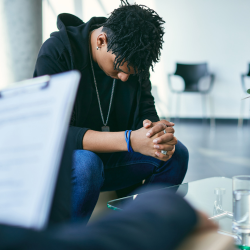
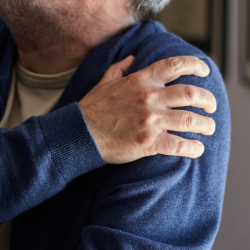


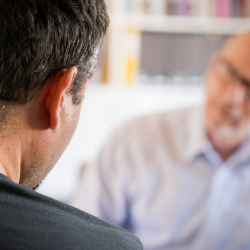


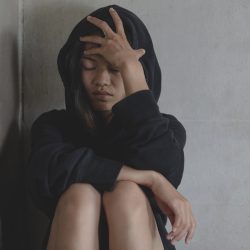

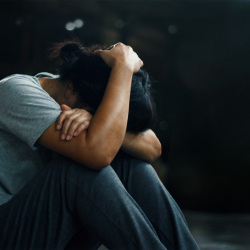



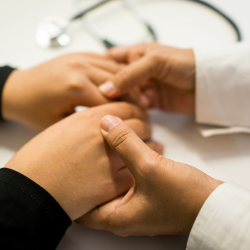



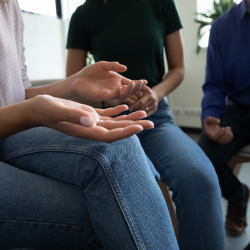
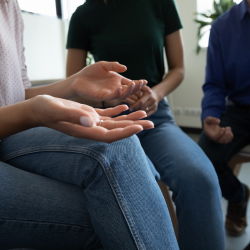


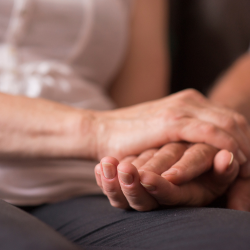
We Aim To Reply To All Enquiries With-in 24-Hours